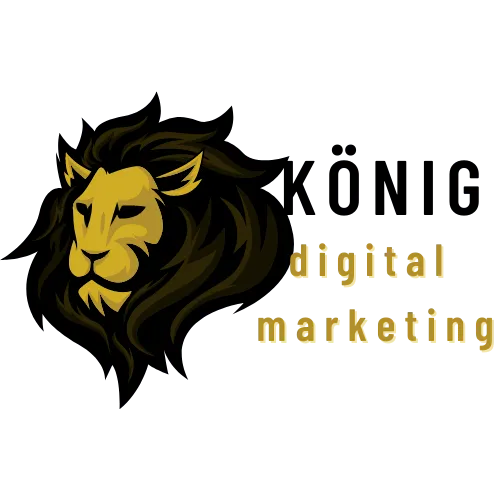

Marketing & Automation Software
By investing in marketing and automation software, you can streamline your customer acquisition process, nurture leads, and unlock hidden revenue through database re-activation. These tools can help you target the right customers, at the right time, with the right message, increasing the chances of converting them into paying customers.

Unlock Marketing Automation Secrets Now!
Marketing Automation For Dental Practices!
In today's fast-paced healthcare landscape, staying connected with patients can be challenging. Marketing automation offers a powerful solution to this problem.
At its core, marketing automation involves using technology to streamline, automate, and measure marketing tasks and workflows.
The result? Increased efficiency and more personalized patient engagement.
Imagine you no longer have to manually send appointment reminders or follow-up emails. Marketing automation takes care of these repetitive tasks, allowing you to focus on what truly matters: patient care.
Automated systems can segment your patient database, ensuring that specific messages reach the right audiences at precisely the right times.
Moreover, marketing automation can significantly enhance your practice’s digital presence. It helps you maintain consistent communication across various channels such as email, social media, and online reviews.
This cohesive approach not only builds trust but also encourages patient loyalty.
Another advantage is the ability to track and analyze patient interactions with your marketing efforts. Data insights reveal what types of content resonate most with your audience, enabling you to refine your strategies for even better results.
Ultimately, marketing automation empowers healthcare providers to create a more personalized experience for patients without adding extra workload. As a result, practices can attract new patients, retain existing ones, and boost overall satisfaction.
If you haven't yet explored the benefits of marketing automation, now is the time to harness its potential and transform your healthcare marketing strategy.
Email Marketing Automation: Boosting Patient Engagement
Email marketing automation can revolutionize how healthcare providers engage with patients. By automating email communications, you can ensure timely, personalized, and consistent interactions that keep patients informed and engaged.
One of the key benefits of email automation is the ability to develop tailored content that speaks directly to the needs and concerns of your patients. For instance, you can send out appointment reminders, post-appointment follow-ups, and health tips specifically suited to individual patient profiles.
This level of personalization helps maintain a stronger patient-provider relationship, improving overall patient satisfaction.
Moreover, automating your email campaigns allows for strategic segmentation. You can group patients based on various criteria such as age, medical condition, or treatment plan, and send targeted emails that resonate with each segment.
This not only increases the relevance of your content but also boosts engagement rates.
Another advantage is that you can track and analyze engagement metrics like open rates, click-through rates, and conversions. These insights enable you to fine-tune your messaging and content, ensuring your communications are as effective as possible.
To get started, choose a reliable email marketing platform that offers automation features. Craft a series of automated email workflows that guide patients through different stages of their healthcare journey—from the initial consultation to ongoing wellness tips.
By incorporating email marketing automation in your strategy, you can save time, reduce manual errors, and most importantly, foster a more engaged and informed patient community.
This proactive approach not only enhances patient care but also contributes to the overall growth and reputation of your healthcare practice.
Claim your free website SEO report on our website https://konigdigital.com/ it's in the popup!
Revolutionizing Social Media with Scheduling Tools
Social media is crucial for any healthcare practice looking to grow its online presence and engage with patients. However, consistently posting and managing multiple social media platforms can be time-consuming.
This is where scheduling tools come into play, transforming how you manage your social media strategy.
Scheduling tools like Hootsuite, Buffer, and Sprout Social allow you to plan and automate your posts across various platforms such as Facebook, Twitter, LinkedIn, and Instagram.
By pre-scheduling content, you can ensure a consistent posting schedule that keeps your audience engaged without requiring daily manual effort.
These tools offer features that can significantly enhance your social media strategy. For instance, they include analytics dashboards that provide insights into which types of posts perform best, optimal posting times, and audience demographics.
This data enables you to refine your content strategy and focus on what truly resonates with your audience.
Moreover, scheduling tools often come with built-in content calendars. This helps you align your social media posts with your overall marketing campaigns, ensuring cohesive messaging.
You can plan posts around important dates and events in the healthcare calendar, from awareness days to seasonal health tips, to keep your content relevant and timely.
Collaboration is also simplified. Team members can collaborate within these tools, making it easier to manage approvals, revisions, and coordinated campaigns.
In summary, leveraging social media scheduling tools can revolutionize your healthcare marketing strategy.
By automating routine tasks and providing valuable insights, these tools free up time and resources, allowing you to focus more on patient care.
Enhancing Online Reputation through Automated Patient Feedback
In today’s digital age, a robust online reputation is critical for healthcare providers. Leveraging automated patient feedback is an efficient way to bolster your online presence while gaining valuable insights into patient experiences.
Automated feedback systems allow healthcare practices to send timely surveys to patients following their appointments.
These surveys can be customized to address specific areas of care, from the quality of treatment to the demeanor of the medical staff.
By using automated tools, you ensure that every patient has the opportunity to share their thoughts, which can then be systematically collected and analyzed.
This continuous feedback loop is more than just a way to stay informed; it’s a key strategy for proactive reputation management.
Positive reviews can be automatically solicited and published on popular review sites, amplifying your practice’s credibility and making you more attractive to potential patients.
Negative feedback, on the other hand, can be addressed promptly, allowing you to resolve issues before they escalate and publicly showcasing your commitment to patient satisfaction.
Moreover, automated feedback systems often integrate with your existing Patient Relationship Management (PRM) software, allowing you to segment feedback by different demographic groups or types of services. This targeted approach enables more efficient follow-ups and tailored improvements in practice.
In essence, automating patient feedback is a strategic move that not only enhances your online reputation but also drives continuous improvement in patient care. Embrace this technology to build a practice that is both reputable and responsive to the needs of its patients.
Targeted Marketing Campaigns for Effective Patient Outreach
In today's competitive healthcare landscape, targeted marketing campaigns are essential for engaging the right audience and improving patient outreach.
By leveraging demographic, geographic, and behavioral data, healthcare providers can tailor their messages to meet the specific needs of different patient segments. This not only enhances the relevance of the messaging but also increases the likelihood of conversion.
To start, segment your patient database based on factors such as age, location, medical history, and engagement patterns. Use this data to create personalized marketing messages that speak directly to each group’s unique healthcare needs and concerns.
For example, a campaign focused on preventive health screenings can be targeted at middle-aged adults, while a separate campaign for pediatric care can be aimed at families with young children.
Next, use automated tools to streamline the execution of these campaigns. Customer Relationship Management (CRM) systems, combined with automation platforms, can help send the right message at the right time.
Trigger-based marketing is particularly effective—sending reminders for annual check-ups or seasonal flu shots based on predefined triggers.
Another key strategy is to employ multi-channel marketing. By integrating email, SMS, and social media outreach, you can ensure a broader reach and reinforce your message across different platforms that patients frequently use.
Lastly, don’t forget to monitor and analyze the performance of your campaigns. Use analytics tools to track key metrics like open rates, click-through rates, and conversion rates.
This data can provide valuable insights, allowing you to refine your efforts and achieve even better results in future campaigns.
Targeted marketing campaigns, when done correctly, can significantly enhance patient engagement and foster stronger patient-provider relationships.
Maximizing Efficiency with Patient Journey Mapping
Patient journey mapping is a powerful tool in healthcare marketing automation. By visualizing every step a patient takes – from discovery to post-treatment follow-up – you can optimize each interaction to enhance patient experience and improve your practice’s efficiency. Here’s how to make the most of it.
First, gather data on your patients’ touchpoints. This includes online searches, social media interactions, appointment scheduling, consultations, treatments, and post-care follow-ups. Understanding what triggers each action will allow you to anticipate patients’ needs and address them effectively.
Next, implement automation tools that align with the different stages of the journey. For instance, automated appointment reminders can reduce no-show rates, while personalized email campaigns can keep patients informed and engaged between visits.
Use CRM systems to segment your patient list based on behaviors and preferences, allowing for more targeted and meaningful communication.
Automated surveys and feedback forms can also be integrated post-treatment to gather insights on patient satisfaction and areas of improvement. By acting on this feedback, you continually refine the patient journey and boost overall satisfaction.
Additionally, consider deploying chatbots on your website to provide instant responses to common queries, freeing up your staff to handle more complex patient interactions.
Effective patient journey mapping doesn’t just streamline operations; it builds stronger patient relationships by delivering consistent, personalized experiences.
By integrating automation at key touchpoints, you enhance operational efficiency and create a seamless, engaging journey for your patients, ultimately driving loyalty and growth for your practice.
Transform Your Business with Smart Marketing Automation Software...
Konig Digital, LLC
Address: 7903 Cole Ave, Takoma Park, MD 20912, United States
Email: [email protected]
Phone No: +1 (240) 202-2609
Hours:
Weekdays – 8 AM to 5 PM
Weekends- OFF

2025 All rights Reserved






